- Home
- slideshows
- miscellaneous
- 7 big issues, rivalries, and alliances to watch for in this week's Democratic primary debates
7 big issues, rivalries, and alliances to watch for in this week's Democratic primary debates
Harris and Booker are expected to team up to take on Biden over his record on racial and civil rights issues, including his alliances with pro-segregation Senators and opposition to busing.

Healthcare is likely to take center stage on both nights, as moderate candidates attack progressives over their support for a single-payer Medicare for All system.
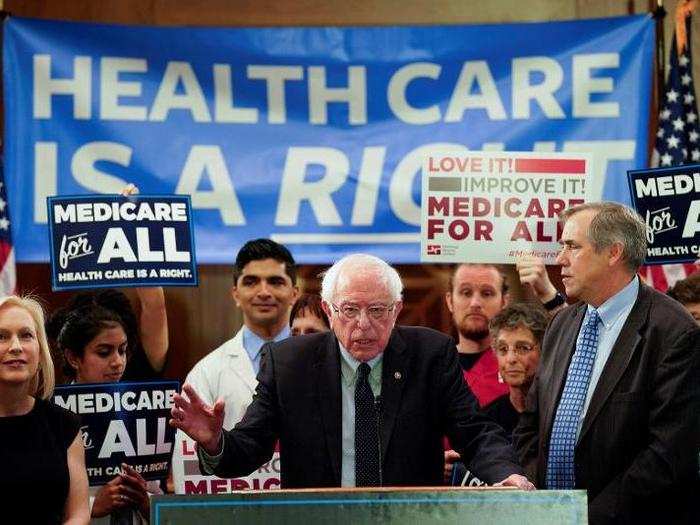
On the first night, we're likely to see sparks fly over healthcare between Sanders and Warren — who support Medicare for All — and more moderate candidates like O'Rourke, Delaney, and Hickenlooper, who support a public option to allow people to buy into Medicare.
Biden and Harris are also gearing up for a showdown over healthcare on night two. While Biden has proposed expanding on the Affordable Care Act, Harris rolled out a plan to enact Medicare for All over 10 years with a mechanism for private insurers to still compete within a government-run system.
Biden's camp slammed Harris' plan as unrealistic to implement, and accused her of trying to "unravel the hard-won Affordable Care Act that the Trump Administration is trying to undo right now."
Sanders, whose version of Medicare for All does not include a substantial role for private insurers, also took a shot at Harris' healthcare proposal, with his campaign manager telling Politico that allowing private insurers to compete within the system would enable "more corporate greed and more profiteering within Medicare"
Sanders and Warren will appear on the same stage as they vie to win over progressive voters.
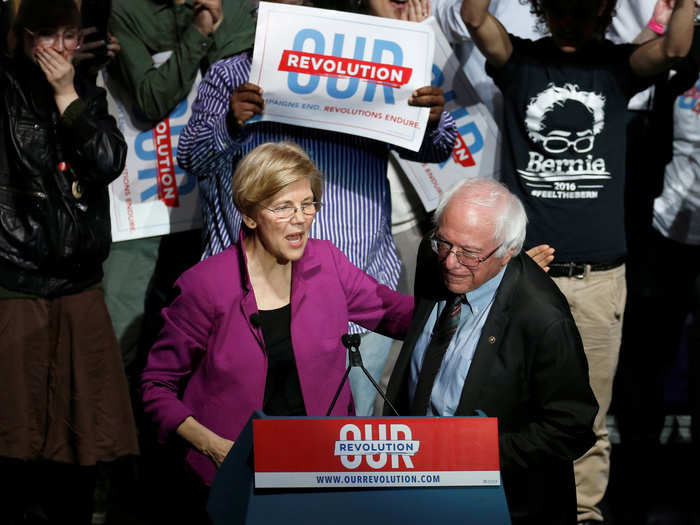
Sanders and Warren have been friends and allies in the US Senate for years, but tensions have risen between the two camps as Warren has eclipsed Sanders in multiple polls and in fundraising, threatening Sanders' status as the progressive standard-bearer.
Despite the two campaigns reportedly reaching a non-aggression pact last December, some Sanders advisers have questioned the strength of Warren's new surge in support and doubted her electability against Trump in tweets and anonymous quotes to news outlets.
In tonight's debate, we'll get to see the dynamic between the two play out in real-time. Sources close to the two campaigns told Politico that the two candidates are more likely to team up and provide backup for each other in defense of progressive policies while debating more centrist candidates, but anything is possible in the unpredictable environment of a debate.
Meanwhile, Biden and Sen. Michael Bennet of Colorado will be the only moderates on stage on night two.
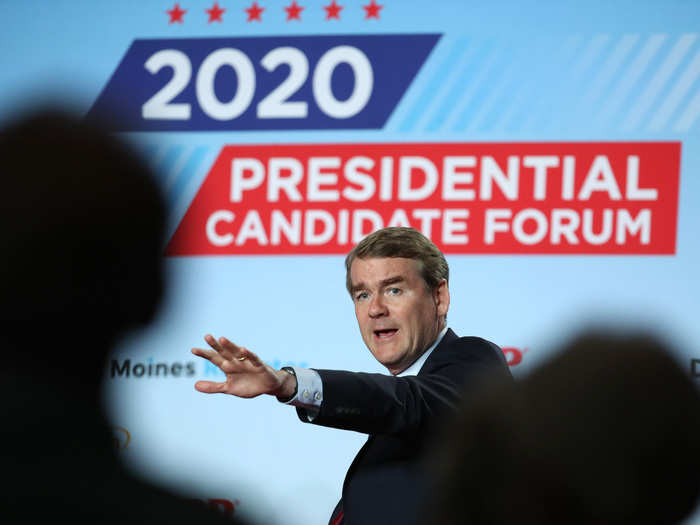
With almost all the centrist candidates concentrated on night one, Biden and Bennet will be the sole moderates to debate alongside eight progressive candidates and the only two who don't support a Medicare for All-style healthcare plan.
In tomorrow's debate, the two centrists could either team-tag the debate and provide backup for each other in debating the progressives on issues including healthcare, immigration, and climate change.
Alternatively, Bennet could distance himself from Biden and try to siphon off some of his support by contrasting himself as a similarly pragmatic and electable moderate but without Biden's long history of political baggage and gaffe-prone tendencies.
Democratic candidates will have to decide how much they want to directly take on Trump and attack him as a racist.
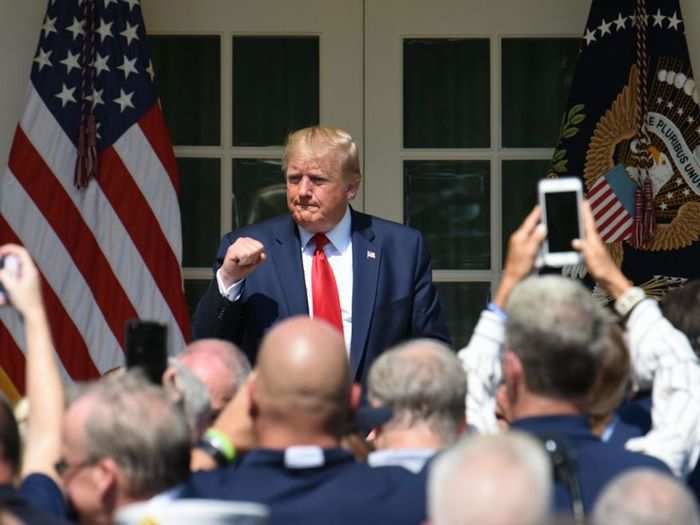
While Biden has focused his campaign message directly on attacking Trump and is positioning himself as the best candidate to take on Trump in the general, other Democratic primary candidates have shied away from invoking him directly, and instead focusing on solving the issues that led to his election in the first place.
But Trump's racist and racially-charged attacks on Democrats of color have reached a fever pitch in recent weeks.
In mid-July, Trump was widely condemned for telling a group of congresswomen of color to "go back to the broken and crime-infested places from which they came," and unleashed a tweetstorm over the weekend attacking Rep. Elijah Cummings of Maryland and predominantly African-American areas of Baltimore in his district as "a disgusting, rat and rodent-infested mess."
Particularly in the second night of debate as Biden, Booker, and Harris are likely to spar over issues of race, candidates who have focused on bigger societal issues and refrained from directly attacking Trump's character, like Gabbard and Yang, could face pressure to condemn Trump is stronger terms.
Several mid- and lower-tier candidates will need to have a breakout moment in order to generate the support necessary to meet the polling and fundraising requirements to make the third debate.
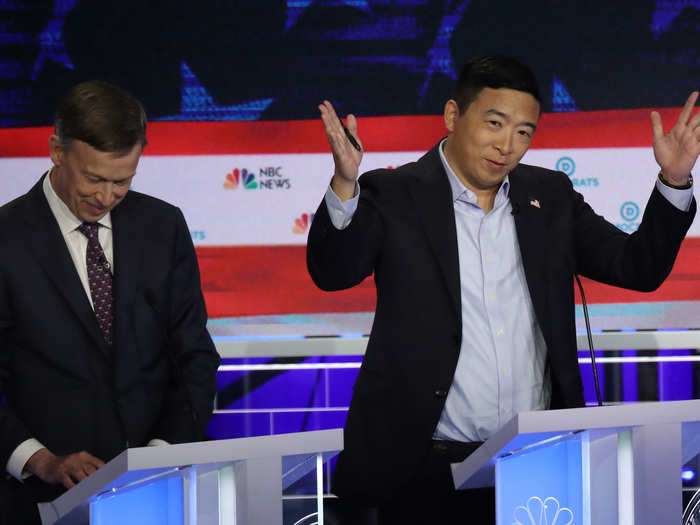
To qualify for the third and fourth primary debates, Democratic candidates must both reach 2% in four DNC-approved polls and obtain 130,000 unique donors from 40 states, leaving many candidates at risk of this week's debates being their last.
So far Biden, Harris, Warren, Sanders, O'Rourke, Booker, Buttigieg, and Yang are guaranteed to be on stage, while Klobuchar and Castro have met one of the two requirements.
For mid-tier candidates like Inslee, Gillibrand, and Gabbard, this week's debates could be their last shot to create the kind of viral moment that Harris created in her attack on Biden, and would win them some increased visibility, possibly boost their poll numbers, and inspire new donors to contribute to their campaigns in order to make the third debate.
Governor Steve Bullock of Montana will make his national debut on night one.
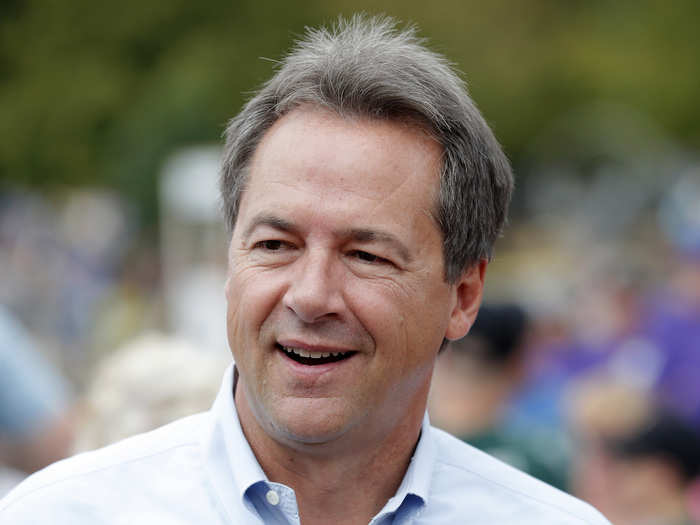
Bullock, who is currently serving his second term as governor of Montana, will appear on the debate stage for the first time after he narrowly failed to make the cut for the first round of debates.
The Montana governor has a unique background and is making an explicit electability pitch, having been re-elected in 2016 by four points as Trump carried his state by 20 points, and hoping to appeal to progressives who want a candidate with a track record of success.
Bullock has pointed to his ability to work across the aisle and get progressive policies like Medicaid expansion passed in a red state, but has received little national attention so far.
With the Democratic primary field likely to thin out over the next few months, this debate will be a crucial make-or-break moment for Bullock to make a strong impression on the Democratic primary electorate for his candidacy to stay viable.
Read more:
The next Democratic debates will make or break several 2020 candidates struggling to survive
Joe Biden on debate rematch with Kamala Harris: 'I'm not going to be as polite this time'
Popular Right Now
Popular Keywords
Advertisement